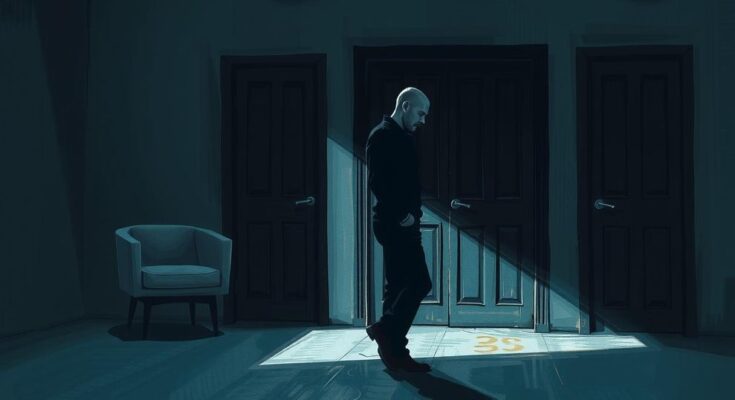“Behind Closed Doors” is a documentary by João Pedro Bim, highlighting Brazil’s descent into authoritarianism during the military regime through the analysis of Institutional Act No. 5. It juxtaposes propaganda newsreels with taped cabinet discussions revealing chilling realities of state violence, employing innovative visual techniques. However, the film is critiqued for its repetitive style and missed opportunities to connect past atrocities with contemporary political issues.
The documentary “Behind Closed Doors” by João Pedro Bim revisits Brazil’s painful history of authoritarianism during the military regime, particularly focusing on Institutional Act No. 5 issued in December 1968. This decree, which removed citizens’ civil rights, heralded a dark era characterized by forced disappearances, torture, and extrajudicial killings. Recently released tapes of a cabinet meeting reveal the chilling discussions behind this act, juxtaposed with state-produced propaganda that depicted an illusion of national unity and prosperity.
The documentary employs contemporaneous propaganda newsreels to contrast the deceptive image of stability with the realities of oppression. These newsreels feature visuals of parades, soldiers marching, and new constructions, accompanied by grim statements from the military officials who planned the restrictions on democratic freedoms. This stark contrast casts the previously glorified figures in a grotesque light, exposing the dissonance between propaganda and reality.
Bim’s creative approach enhances the documentary’s impact through innovative visual techniques such as freeze frames, time lapses, and jump cuts. These elements serve to disrupt the narrative flow, highlighting the disjunction between the projected cohesive vision of the state and the underlying brutality of its actions. However, these stylistic choices become somewhat monotonous as the film advances, leading to diminishing returns in visual surprise.
Additionally, while the film compellingly recounts historical atrocities, it misses the opportunity to draw explicit parallels between past and present authoritarian tactics, particularly in relation to Jair Bolsonaro’s government. By failing to robustly connect historical and contemporary political dynamics, the documentary leaves a gap in its impactful commentary on Brazil’s ongoing struggles with governance and freedoms.
In summary, “Behind Closed Doors” serves as a critical examination of Brazil’s descent into authoritarianism during the military dictatorship, contrasting propaganda’s illusions with horrific realities. While the documentary’s innovative techniques enhance its narrative, it falters by not sufficiently connecting historical events to present political contexts. The film ultimately underscores the importance of remembering and analyzing past abuses to comprehend the complexities of current governance in Brazil.
Original Source: www.theguardian.com




